12 ways the body changes during long-term space flight, according to Nasa
As Tim Peake becomes the first Briton in space for two decades, here's what happens to the body during long-term space flight
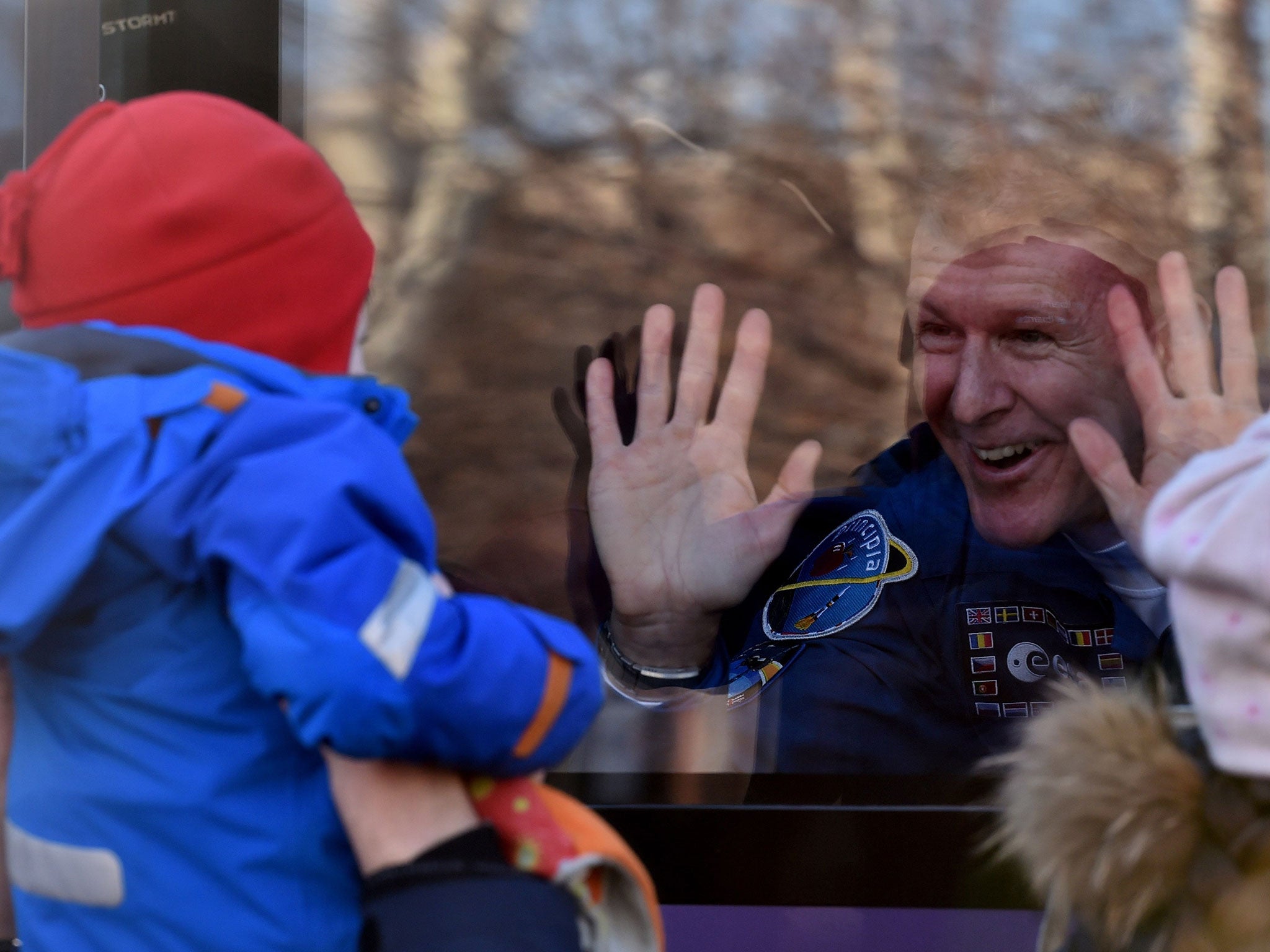
Your support helps us to tell the story
From reproductive rights to climate change to Big Tech, The Independent is on the ground when the story is developing. Whether it's investigating the financials of Elon Musk's pro-Trump PAC or producing our latest documentary, 'The A Word', which shines a light on the American women fighting for reproductive rights, we know how important it is to parse out the facts from the messaging.
At such a critical moment in US history, we need reporters on the ground. Your donation allows us to keep sending journalists to speak to both sides of the story.
The Independent is trusted by Americans across the entire political spectrum. And unlike many other quality news outlets, we choose not to lock Americans out of our reporting and analysis with paywalls. We believe quality journalism should be available to everyone, paid for by those who can afford it.
Your support makes all the difference.Living in a world with microgravity where you're just inches from exposure to the vacuum of outer space can have a profound influence on the human body.
Most astronauts only spend six months at a time in that environment on the International Space Station (ISS), floating 250 miles above the Earth.
Tests performed on three ISS astronauts sent into sace in March will get us closer to understanding what could happen on longer space exploration missions, like visiting Mars — a journey that will take at least six months each way.
It may not sound like a long time, but this year-long trip is not for the faint of heart. Scientists know a few things about what a 6-month stay in microgravity does to the human body, some of which are downright disturbing:
1. It stretches out your spine
Astronauts can grow up to 3 per cent taller in space. That means that a 6-foot-tall astronaut could tack on an extra two inches.
The growth spurt happens because microgravity allows the squishy spinal discs between vertebra freedom to relax and expand — almost like relieving pressure on a spring. It takes a few months to return to normal height after they get back to Earth.
2. It turns your muscles into jelly

You don't need muscles to support you in a weightless environment. Astronauts' muscles almost immediately start shrinking and shedding the extra tissue that they no longer need.
That's why exercise is crucial on the ISS so astronauts can maintain the muscle mass they need when they return to Earth.
They usually budget about two hours a day for exercise. That includes “weight lifting” using a special resistance machine, since a freeweight weighs nothing in zero gravity. You can see the crazy contraption used to do squats below:
3. It makes your face puffy
Our bodies are mostly liquid. The gravity on Earth pulls that liquid down and some of it pools in our lower extremities. In near zero-g the liquid is spread out more evenly around the body, so astronauts' faces look puffier than normal while their legs look skinnier than normal.
After a few weeks the body adjusts to the gravity change and some of the puffiness goes down.
4. It thins out your bone density
Astronauts can lose around 1% of their bone density every month they spend in space if they don't regularly exercise. It makes them a lot more likely to break bones when they're back on Earth — similar to people who have osteoporosis.
Exercise and good nutrition is crucial for minimizing this effect. It will be especially important for the astronauts spending a full year in space.
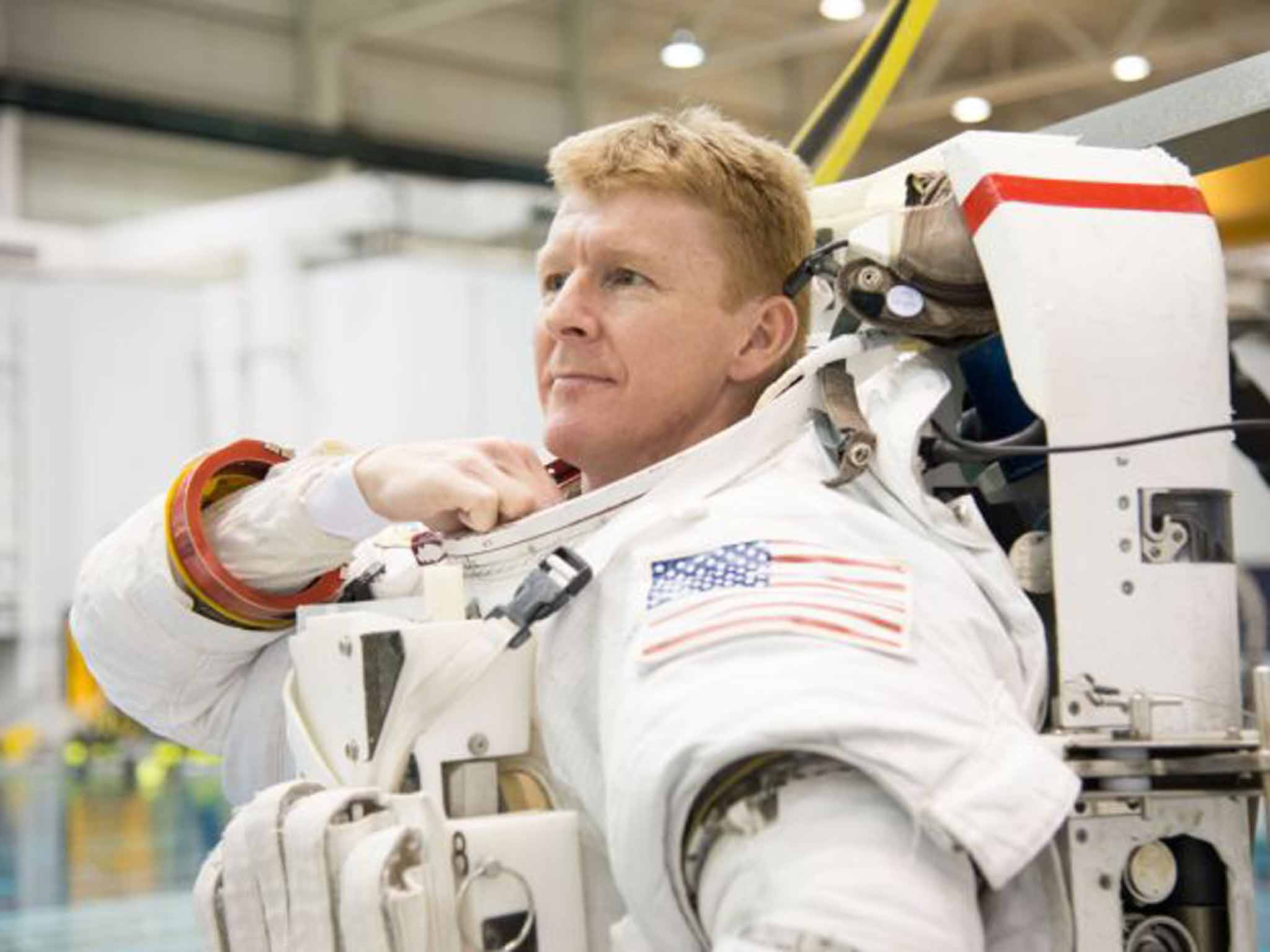
5. It can cause vision problems
A 2013 study examined the eyes of 27 astronauts who had spent an average of 108 days on board the ISS. Nasa researchers found that many of them had eye abnormalities after returning from space. MRI scans showed that nine of the astronauts had bloating around their optic nerves and six of the astronauts had eyeballs that were physically flattened out in the back.
This is definitely cause for concern, but none of the astronauts have reported any serious trouble seeing. NASA is conducting a more comprehensive follow up study.

6. It messes with your immune system
Living in space can depress astronauts' immune systems, according to a study published in 2014.
"Things like radiation, microbes, stress, microgravity, altered sleep cycles and isolation could all have an effect on crew member immune systems," Brian Crucian, Nasa biological studies and immunology expert, who led the study, said in a statement. "If this situation persisted for longer deep space missions, it could possibly increase risk of infection, hypersensitivity, or autoimmune issues for exploration astronauts."
That means the astronauts planning to spend a year in space may be more likely to get sick.
The study found that astronauts' depressed immune system also meant that old, latent viruses like chicken pox can be reawakened, even though no symptoms have shown up in astronauts living in space so far.
Some immune cells collected from astronauts living in space were actually overly aggressive instead of depressed, and might explain why some astronauts get rashes and other allergic reactions.
7. It screws up your sleep cycle
Astronauts have to strap themselves into sleeping bags every night. In microgravity their heads roll forward and their arms float up once they fall asleep.
The weird position is hard to get used to.
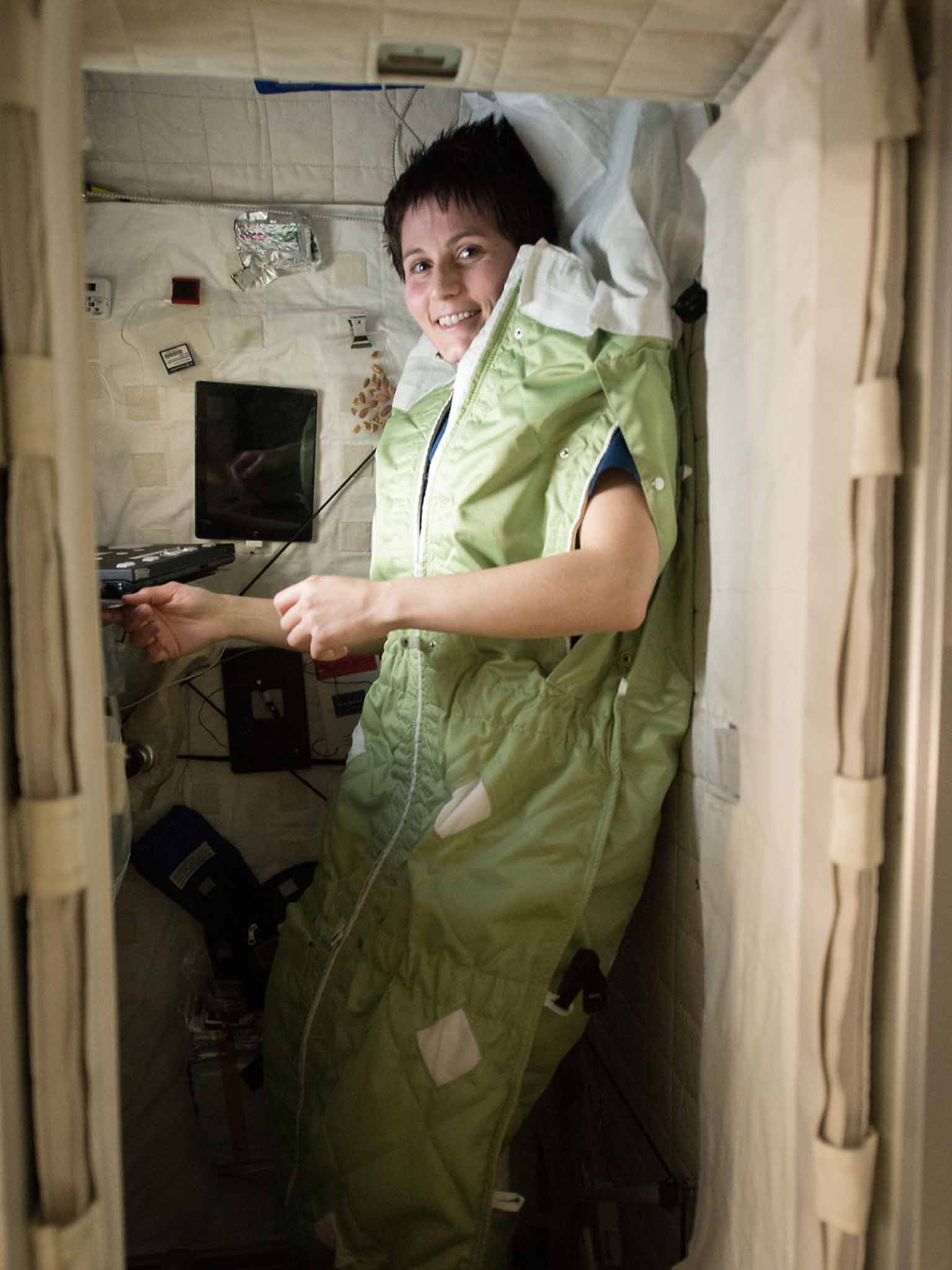
"Sometimes you wake up in the morning to see an arm floating in front of your face and think, “Whoa! What is that?” until you realize it’s yours," astronaut Marsha Ivins told Wired.
But there are many other disturbances that make it challenging to get quality sleep in space. Brilliant flashes of light that can illuminate the space station every time streams of cosmic raysshoot by.
Now astronauts have individual sleeping pods that help shut out some of that light. Still,studies have found that most astronauts are only getting about six hours of sleep even though their schedules call for eight and a half hours.
8. It throws off your coordination
It's a struggle returning to Earth after spending 6 months in microgravity. Astronauts lose their definitive sense of up and down while they're in space because the vestibular system can't tell where the ceiling is and where the ground is in a weightless environment.
Eventually the body re calibrates, but astronauts are a little shaky on their feet at first.
9. It messes with your senses
Pressure changes in space and so fluids shift around in the body. The same effect that makes astronauts' faces puffy also makes them congested.
"It's the same as having a cold or allergies," astronaut and physician Scott Parazynski toldScientific American. "A stuffy nose definitely dampens your sense of smell and consequently your sense of taste."
Many astronauts have reported that flavors are much more dull in microgravity, so they crave food with a lot of extra flavoring and spice to make up for the bland taste. Food and drink that rely on a sense of smell to bring out the flavor, like coffee, are disappointing in space.
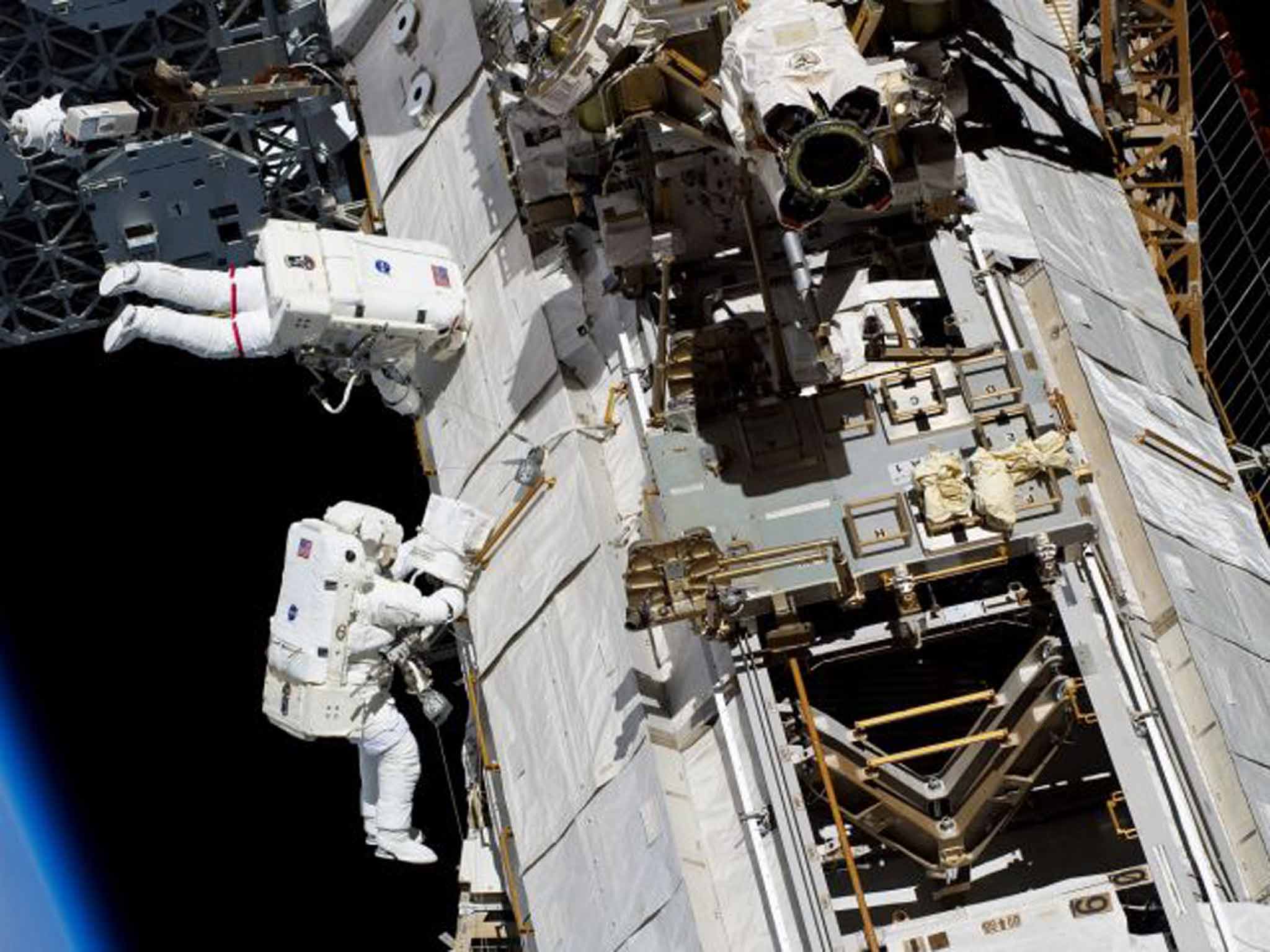
10. It takes a toll on your psyche
On the ISS astronauts are literally a world away from anything familiar, and it's not like they can pack up and leave any time they want.
Astronauts undergo a rigorous psychological screening before they can even start training for space. Still, feelings of isolation and confinement are a big risk. Combine that with sleep deprivation, the absence of the comfort of gravity, and dulled senses, and you can begin to imagine the psychological toll long-term spaceflight can take.
Many astronauts have described it as the hardest thing they have ever done.
11. It makes nutrition a challenge
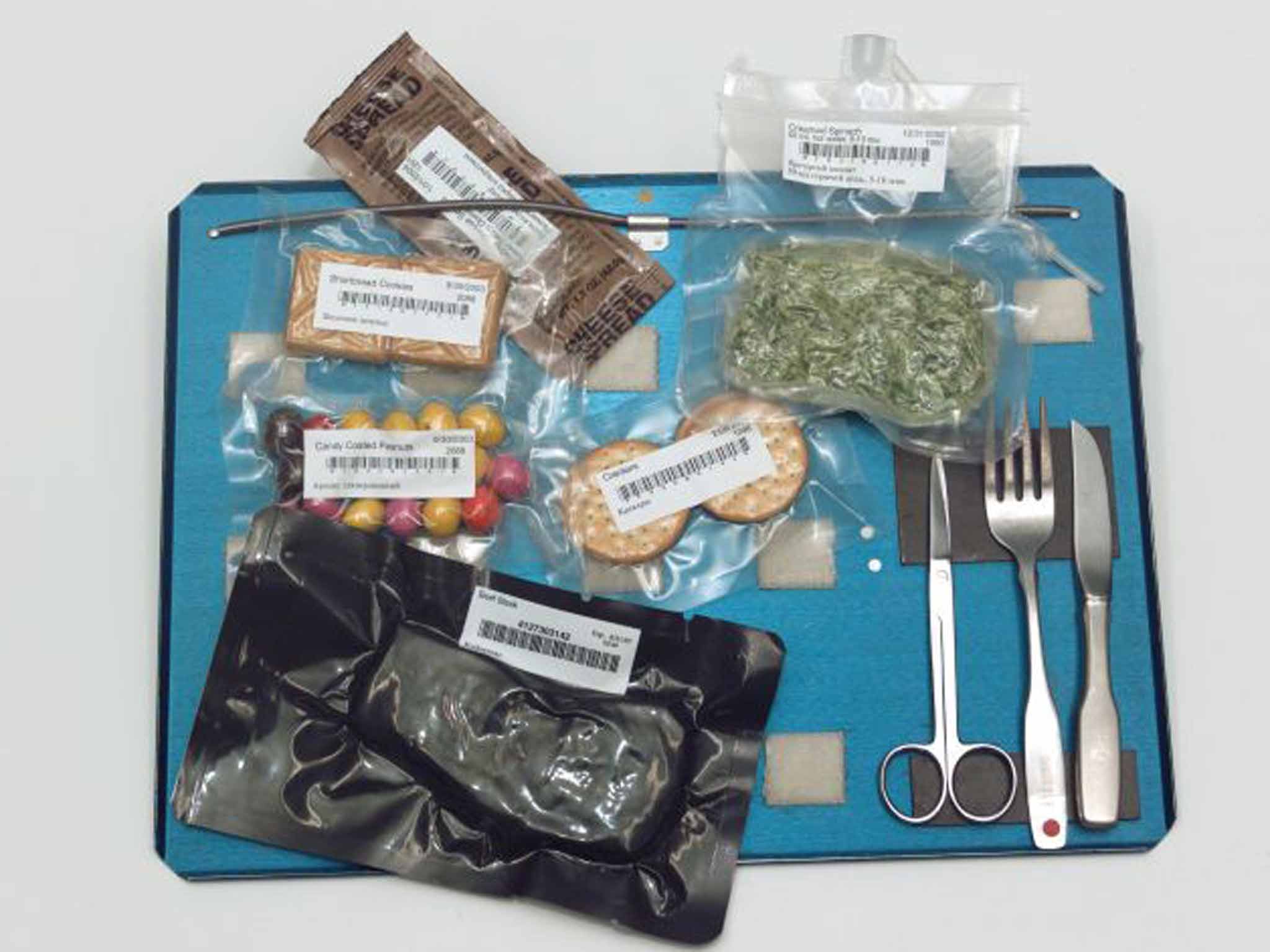
Not getting the right nutrients can make almost all of the above effects even worse.
Vitamin D is a concern for astronauts because they're not exposed to sunlight and it's easy to wind up with a deficiency, according to Sara Zwart, a senior scientist at Nasa who studies the nutrition effects of long-term spaceflight.
Specifically, oxidative stress is much greater in space, so astronauts need a lot of antioxidants, Zwart told Business Insider. Spaceflight also changes iron metabolism. Astronauts have elevated iron levels because their red blood cell mass decreases.
Astronauts track their food intake every week to make sure they maintain the right levels of nutrients. Usually iron levels return to normal after a few months back on Earth.
12. It exposes you to dangerous cosmic radiation
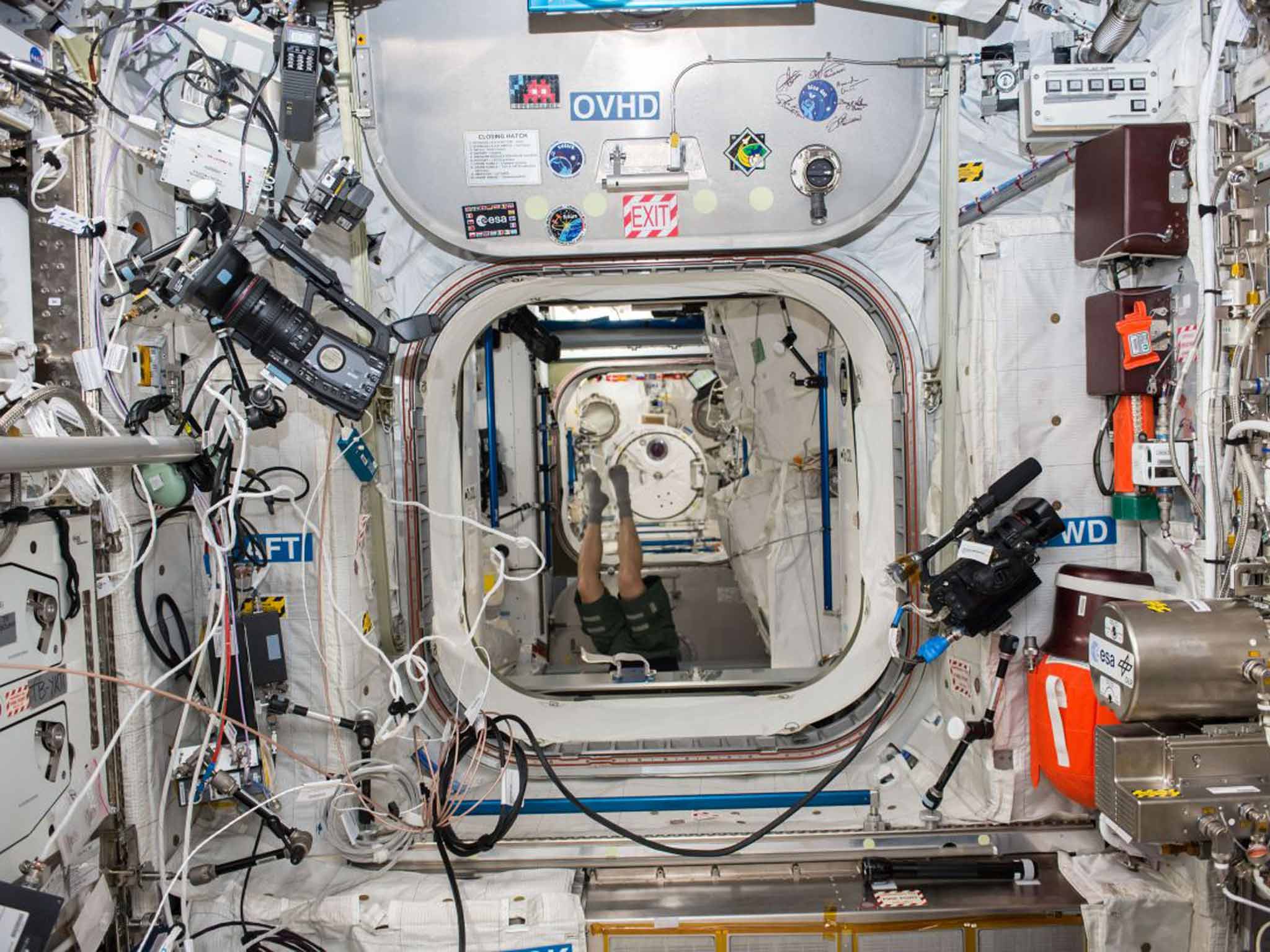
Cosmic radiation will not give you super powers like in "The Fantastic Four." A dose of it can tear through your very DNA, and that damage can lead to cancer, cataracts, or other diseases.
Earth's atmosphere acts as a force field that shields us from 99 per cent of cosmic radiation, but astronauts don't have the same kind of protection in space. Radiation risk increases by a factor of about 30, according to the European Space Agency.
Astronauts wear dosimeters while on board the ISS that measure how much radiation they are exposed to. Their careers as astronauts are limited based on their exposure.
Scientists don't know much about what will happen beyond six consecutive months in space. Some of the effects may stay the same, some could worsen, or we may see new effects. Nasa's year-long space mission will be crucial to understanding the risks of long-term manned missions to the moon or Mars.
Still, all of this is much better than if you somehow found yourself free floating outside the space station without a spacesuit where scientists predict you only have two minutes before you're dead.
• Shell is cutting 2,800 jobs following its mega takeover of BG Group
• HSBC is thinking about moving its headquarters to Canada
• Amazon is pulling hoverboards from its site because they keep exploding
Read the original article on Business Insider UK. © 2015. Follow Business Insider UK on Twitter.
Join our commenting forum
Join thought-provoking conversations, follow other Independent readers and see their replies
0Comments